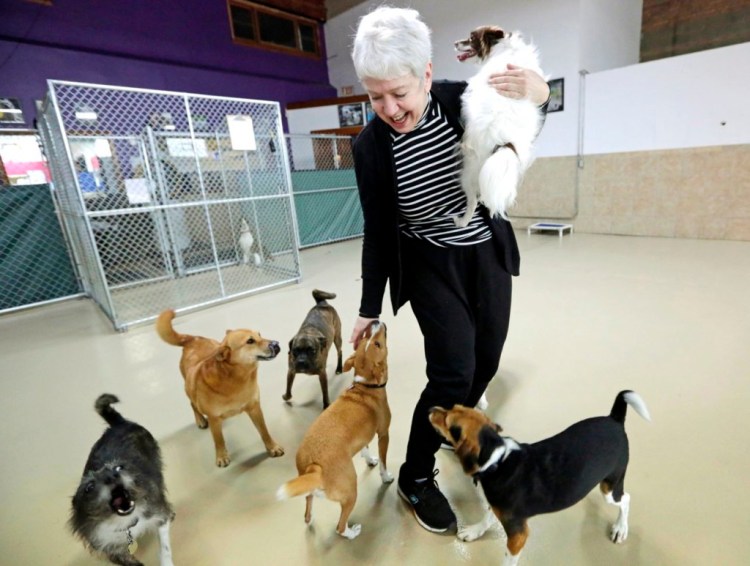CHICAGO — While usually a healthy experience for the dogs, the day care environment, with dozens of pets mingling, contributed to an epidemic of dog flu in Chicago that is spreading in the Midwest, experts say.
The illness could arise in other urban areas after sweeping through the city where it took advantage of spring break boarding and sickened more than 1,100 dogs.
IT PROBABLY CAME FROM ASIA
Experts at Cornell University’s College of Veterinary Medicine say the H3N2 dog flu virus likely arose from viruses circulating in live bird markets in Asia. It spread among dogs in South Korea and parts of China. An outbreak hit Thailand in 2012.
Before now, the strain hadn’t been seen in North America. That suggests a recent introduction from Asia.
Not all infected dogs show symptoms. Some get a cough, runny nose and fever. Severe cases can lead to pneumonia. Six dogs have died in the Chicago-area outbreak. Cases have also been reported in Wisconsin, Ohio and Indiana.
IT SPREAD AT DOGGIE DAY CARE
Many urbanites use doggie day cares while they work long hours. Paying others to exercise their pets, owners can forgo long walks and enjoy guilt-free pooch snuggling in the evenings.
Beverley Petrunich, co-owner of DoGone Fun, a day care and boarding facility says most of her clients are young professionals living in Chicago’s high-rises. When the virus emerged, her canine clients were hit hard. Petrunich consulted with vets, then closed for five days in late March to control the outbreak.
Dogs that seemed healthy “would come in with the virus and contaminate other dogs,” Petrunich said. “We decided, the only way we can stop this is to stop having the dogs interact with each other and the only way we can do that is to close.”
IT GOT A SPRING BREAK BOOST
The virus hit just before spring break trips and Easter family gatherings, when families had reserved kennel space for their dogs. Boarded dogs caught flu from other dogs, adding to the outbreak, said Dr. Ken Goldrick, a veterinarian at Family Pet Animal Hospital in Chicago.
“We saw many families that week after Easter,” Goldrick said. “They’d say, ‘We boarded him for the weekend while we went to visit family, and now he’s coughing.'”
IT ISN’T OVER
Day care clients provide key revenue for Tucker Pup’s Dog Activity Center in Chicago, said owner Joel Spainhour. But he lost 80 percent of his regulars as officials warned the public to avoid dog parks, kennels and allowing dogs to play with other dogs.
“The day care dogs for the last three weeks have been down dramatically,” Spainhour said. “They are starting to come back now.”
But some say the epidemic isn’t over.
“The majority of veterinarians are still reporting an increasing number of animals coming in with respiratory symptoms,” said Dr. Donna Alexander, a vet who is administrator of the Cook County Department of Animal and Rabies Control. Animals can still spread the disease up to four weeks after they stop coughing, she cautioned.
IT MAY HAPPEN AGAIN
The new strain could arise in other parts of the country.
“The world is a very small place, and viruses easily travel from one part of the world to another,” said Dr. Amy Glaser of Cornell. “We can expect it to happen more frequently.”
Send questions/comments to the editors.



Comments are no longer available on this story